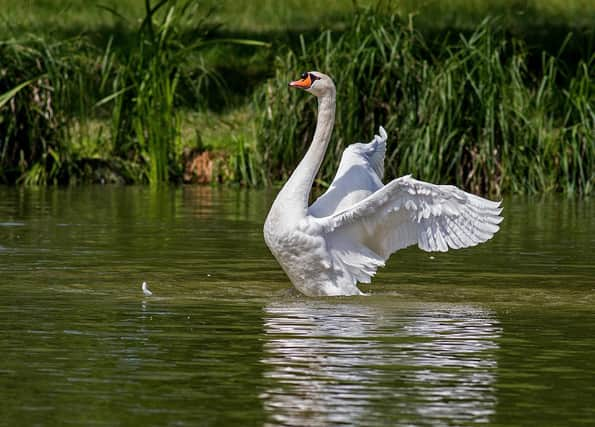'Don't feed the birds': Warning to families as dead swans prompt avian flu investigation at nature reserve


In recent days, the trust has received a number of reports relating to sightings of up to half a dozen dead or dying swans.
Whilst sightings are still being followed up, there has so far been no official confirmation of the virus at the reserve – but the charity is taking a cautious approach.
Advertisement
Hide AdAdvertisement
Hide AdSpeaking on behalf of the trust, head of communications Erin McDaid said: “While we’ve received no official confirmation of the virus at the reserve, given the severity of the avian flu outbreak across the country and reports of cases nearby, we are working on the assumption we have the virus on site.”
The trust, which cares for dozens of nature reserves across the county, including many other wetland sites, is keen to reassure the public that it is safe to visit the site - but urged people to report any dead birds to the official hotline and to ensure they do not touch dead or sick birds.
Erin continued: “Whilst it is upsetting to have any birds dying in this way, the risk to the public from this strain of avian flu is very low.
“However, people should not touch any dead or sick birds on site and we would ask visitors to help us by reporting any sightings of dead birds directly to DEFRA. ”
Advertisement
Hide AdAdvertisement
Hide AdThe official advice is for anyone finding dead swans, geese or other dead wild birds, such as gulls or birds of prey, to report them to the Defra helpline on 03459 33 55 77 (option 7). Sick and injured birds should be reported to the RSPCA on 0300 1234 999.
As an additional precaution the trust is asking visitors not to feed birds on site while avian flu cases remain high.
Erin explained: “As an additional measure to prevent birds coming into close contact, they are congregating to be fed by visitors so we are asking people not to feed birds at the reserve for the time being.
“We recognise that people enjoy feeding the birds, especially children and families, but believe that the current situation requires a cautionary approach.
“Whilst providing a welcome treat, supplementary feeding is not essential for reserve’s wild birds.”